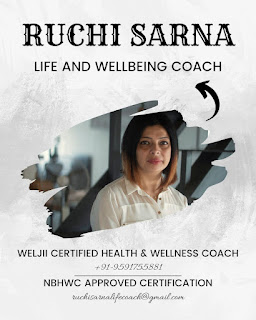Ultimate Guide to Personal and Professional Growth Strategy
Ultimate Guide to Personal and Professional Growth Strategy
Are you looking for ways to enhance your personal and professional growth? In today's fast-paced world, it's easy to get overwhelmed by work and life demands. However, focusing on personal and professional growth can help you develop the skills and mindset required to overcome obstacles and achieve your goals. This guide covers a wide range of topics related to personal and professional growth, including career development, career burnout, self-care, procrastination, self-esteem, and lifestyle.
Career development is a critical aspect of any professional journey that helps individuals advance in their careers and achieve their goals. A career development plan outlines professional objectives, action items, timelines, and resources needed to achieve set goals. Individuals need to assess their strengths and weaknesses and determine the skills required to reach their objectives to create an effective career development plan.
Career burnout is becoming increasingly common in fast-paced work environments. Coping strategies, such as problem and emotion-focused coping, mindfulness training, exercise, and social support, can help promote well-being. Work engagement, achieved by providing a sense of meaning, control, and growth opportunities, plays a crucial role in preventing burnout. Mindfulness-based stress reduction, exercise, flexible work arrangements, supervisor support, and EAPs are effective interventions for preventing occupational stress and burnout.
To improve confidence, individuals can turn to career coaching, particularly if they struggle to reach their career goals due to a lack of self-assurance. A career coach can help individuals establish realistic goals and receive guidance on how to achieve them, resulting in better job performance and an increased likelihood of achieving career goals.
Balancing the demands of work and personal life can be challenging, but it can be managed by setting clear goals, managing time effectively, creating a boundary between work and personal time, building resilience, and adopting a positive attitude. Stress is a natural response to challenges and difficulties in life, but chronic stress can take a toll on your mental and physical health. Knowing stress triggers, practicing relaxation techniques or meditation, exercising regularly, eating a well-balanced, healthy diet, and adopting a positive attitude can help manage stress.
Procrastination is a common problem that affects people in many areas of their lives. Breaking tasks into smaller, more manageable steps, setting deadlines, eliminating distractions, and practicing positive self-talk are effective ways to overcome procrastination.
Self-esteem is a crucial aspect of a person's mental well-being that affects their motivation and overall quality of life. It can either be high or low and has positive and negative effects on an individual's life. Low self-esteem leads to negative thoughts about oneself, lack of confidence, and feelings of inadequacy, while high self-esteem leads to positive thoughts about oneself. Self-esteem can be improved or diminished by a person's experiences and circumstances.
By following the tips and strategies outlined in this guide, you can enhance your personal and professional growth, improve your well-being, and achieve your goals.
Reference:
- https://www.ruchisarna.com/post/career-burnout-interventions-coping-strategies-and-prevention
- https://www.ruchisarna.com/post/career-development-pathway-to-success
- https://www.ruchisarna.com/post/how-can-i-get-a-job-immediately
- https://www.ruchisarna.com/post/improve-confidence
- https://www.ruchisarna.com/post/lifestyle
- https://www.ruchisarna.com/post/proven-ways-to-kick-your-procrastination-habit
- https://www.ruchisarna.com/post/self-esteem-why-it-matters
- https://www.ruchisarna.com/post/stress-and-health-understand-and-manage
- https://www.ruchisarna.com/post/the-3-rs-of-habit-formation-reminder-routine-reward
- https://www.ruchisarna.com/post/thoughts-how-our-thinking-shapes-our-lives
- https://www.ruchisarna.com/post/time-management
- https://www.ruchisarna.com/post/tips-for-maintaining-a-healthy-relationship-expert-advice-for-couples-6
- https://www.ruchisarna.com/post/what-is-personal-development
- https://www.ruchisarna.com/post/why-self-care-isnt-selfish-7
- https://www.ruchisarna.com/post/work-life-balance



Well Done Thanks for sharing informative Blog
ReplyDeleteIf you want Best life coaching , Contact Sanjeev Bhutani - Life Purpose Life Coach
Thanks for sharing.
ReplyDeleteParenting Coaching – A need for today’s Fast Changing Family life
Ready for a new you? TranceForMission’s Personal Development Coach helps you dive deeper into who you are and who you’re meant to become. With personalized sessions, practical tools, and supportive guidance, we’ll help you set goals, break barriers, and align your actions with your purpose. Whether it’s emotional growth, self-confidence, or inner peace, our retreats and programs are designed to bring out your best self—every single day. Feel stuck or like something's missing? Let’s help you grow into the person you’ve always wanted to be.
ReplyDeleteUnlock your potential with Dezin's Master Certified Life Coach services. Recognized by the International Coaching Federation (ICF), our expert coaches provide personalized guidance to help you overcome challenges, enhance leadership skills, and achieve personal and professional growth.
ReplyDelete